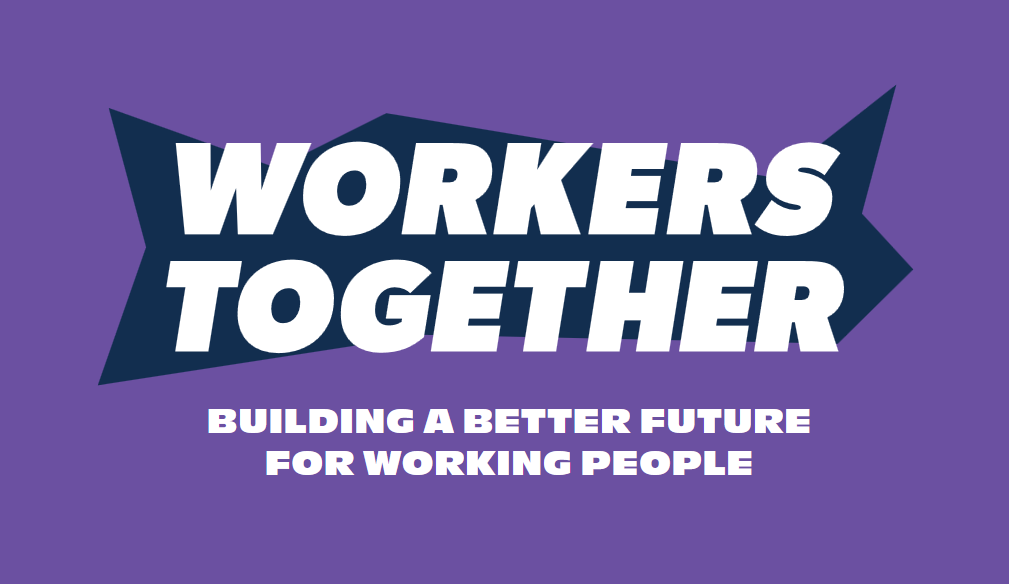
October 7 marked the 10th anniversary of World Day for Decent Work, a global workers’ rights campaign led by the International Trade Union Confederation (ITUC). The ITUC, a Brussels-based global union federation, used this year’s campaign to call for “just jobs” and a post-pandemic recovery that puts the global working class first.
As the ITUC’s press release notes, the international economy has lost more than 200 million jobs due to the pandemic. Canada’s contribution to this figure is around 2 million jobs. Moreover, women, racialized workers and others who regularly experience labour market insecurity have disproportionately borne the brunt of the pandemic-induced economic contraction. Although many national economies are now rebounding, we’re far from replacing all the jobs that we’ve lost since February 2020 or from dealing with the broader pandemic economic fallout.
In fact, this past week Statistics Canada released its much-anticipated jobs report — the Labour Force Survey (LFS) — for September. On the whole, the September report showed promising signs in the Canadian labour market: Total employment in Canada is back to its February 2020 level for the first time since the beginning of the pandemic.
However, the employment rate is still 0.9 per cent below the pre-pandemic level — a reflection of job growth not keeping up with population growth — and unemployment is still 6.9 per cent, much too high for anyone concerned with the plight of workers.
Employment among core-aged men and women is back to pre-pandemic levels. The public sector continues to outperform the private sector in terms of job growth, as does the service sector relative to the goods-producing sector. Wages are also up 4.6 per cent compared to two years ago, which, though representative of fairly strong wage growth, also shows a slight slowdown in wage growth from last month’s figures.
Across a range of indicators, the big takeaway from September’s LFS is that we’re more or less on track to return to the conditions of work in February 2020. Without a doubt, this is better than remaining mired in under-employment and borderline recession. But no one should have any illusions that the pre-COVID Canadian economy was delivering for workers.
As one further example, both Indigenous men and women have made gains in the labour market during this recovery. The employment rates for Indigenous men and women in September were 61.2 per cent and 55.4 per cent, respectively. However, this brings Indigenous workers essentially back to where they were two years ago, with employment rates, not to mention wages and incomes, well below non-Indigenous workers.
All this is to say that getting back to where we were a year and a half ago, whether in Canada or globally, is hardly sufficient. Unemployment, under-employment and precarious work were endemic across developed and underdeveloped economies before the deadly virus arrived, and every indication so far is that governments, at best, plan to bring us back to the status quo. Particularly in the Global South, where unregulated, informal labour remains a pressing issue, workers faced grave economic challenges, mostly without the power of organized labour movements.
The ITUC has thus set a target for governments to create 575 million jobs and to formalize half of informal jobs globally by 2030. As ITUC General Secretary, Sharan Burrow, said, “Governments must have one overriding priority, and that is jobs. They need to recommit to full employment. This provides the basis for economic security and for social justice.” Burrow continued: “Our jobs demand is achievable, in particular if governments pursue tax policies that are equitable instead of designed to allow a tiny number of people to hoard hundreds of billions of dollars by avoiding tax. That revenue could kick-start job creation.”
As part of World Day for Decent Work, the Canadian Labour Congress (CLC), Canada’s largest trade union federation, called on the new Liberal government to not just replace the jobs that were lost to the pandemic, but to replace them with better ones. The CLC has developed what it calls “Forward Together: A Canadian Plan,” a jobs plan that focuses on large public investments in infrastructure, public services and a “made-in-Canada procurement strategy.”
The CLC here in Canada, as well as the ITUC globally, are calling for us to use the pandemic recovery as an opportunity to move our economies in a worker-friendly direction — to address precarious employment and degraded public services and infrastructure, to tackle economic, racial, and social inequality, to finally make meaningful investments in the fight against climate change, and to think through what an economy that puts the needs of workers and their families at the centre would look like.
People have seen that governments can mobilize money and resources if they choose to. The fiscal capacity of the state was on full display throughout the pandemic, and now it’s time to use that capacity to reorient our economies away from harmful private accumulation and toward meeting social needs, protecting workers’ rights, and ensuring social protection and environmental sustainability.
As both the CLC’s Canadian Plan and the ITUC “just jobs” call make clear, there are three central pillars to this economic agenda: building out the public sector, particularly the “care economy”; implementing a “just transition” that moves us away from environmentally destructive work and private consumption; creating a new “social contract” by strengthening the social safety net.
When it comes to strengthening public services, the CLC is calling on the federal government to finally introduce national pharmacare, which the Liberals promised to move on in Budget 2021 but then conspicuously left out of their recent election platform. As well, increasing funding for our health care system and bringing long-term care under public control are key fights ahead. The pandemic made this abundantly clear.
Perhaps the most important social service we need, however, is universal national child care. This is all the more obvious given the pandemic’s disproportionate impacts on working women, many of whom struggled to balance paid employment with unpaid care work or were forced out of the labour market because of a lack of affordable childcare.
As I’ve written about previously in this newsletter, we’re the closest we’ve ever been to a national childcare system — though the fight to realize its $10-per-day promise will continue. In particular, it remains to be seen how the resumption of bilateral negotiations with the provinces will go once the new federal Parliament is in session. Nevertheless, the program is within reach.
Second, as the ITUC and many unions around the world have long been arguing, climate change necessitates rethinking the way we work, but it also opens opportunities to redeploy vast numbers of workers to perform environmentally imperative work. The millions of workers throughout the world who are presently labouring in environmentally-destructive industries must be given assurances that a robust climate plan takes their interests seriously. We need a “just transition” that not only protects these workers through robust social benefits but also makes a rational case that they will be better off under an alternative, climate-friendly economy.
Last, the ITUC calls for a new “social contract.” This includes re-regulating labour markets throughout the international economy, moving workers in the Global South into formal employment with regulatory protections and access to social benefits, and guaranteeing all workers access to a suite of social protections that secure them against economic instability. At minimum, this includes raising living wages and protecting against excessive hours, ending problems like willful employee misclassification now rampant in the so-called “gig economy,” and making sure that all workers have access to public benefits, such as unemployment insurance, workers’ compensation, and paid leaves.
The World Day for Decent Work was an opportunity for labour movements around the world to raise awareness about these pressing tasks. Of course, no government overseeing a capitalist economy is about to implement these worker-friendly measures based on our sound arguments alone. Now is the time for labour movements the world over to build alliances and the collective strength to force them to do what needs to be done.







